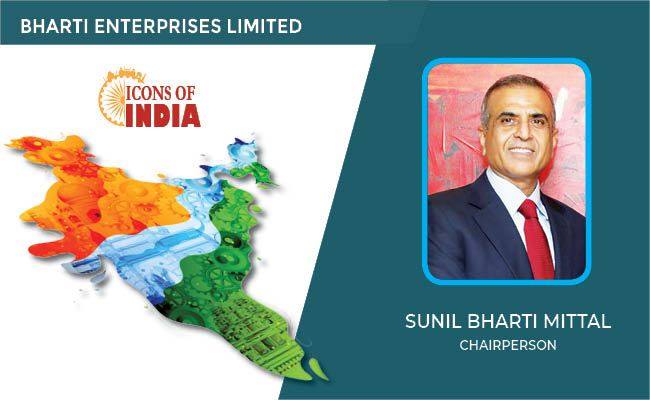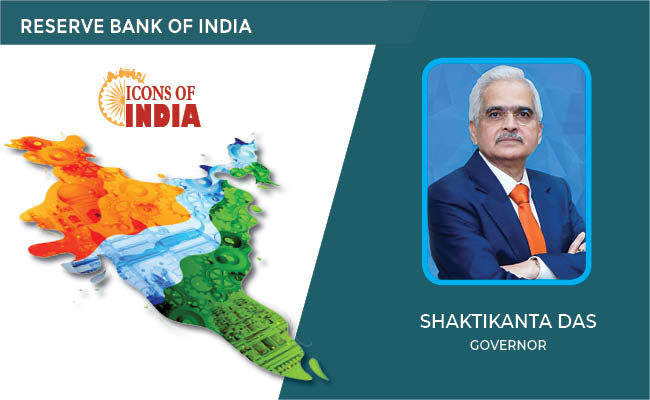AI Industry : Riding the Wave of Innovation and Growth
By MYBRANDBOOK

The artificial intelligence (AI) industry in India has rapidly emerged as a key player on the global stage, driven by a robust ecosystem of startups, supportive government policies, and a growing pool of skilled professionals. In 2023, AI continued to transform various sectors, from healthcare and finance to agriculture and education, underscoring its potential to drive economic growth and societal progress.
Globally, AI has become a critical technology, with countries vying for leadership through significant investments in research and development (R&D), and policy frameworks aimed at fostering innovation. Major AI pioneers such as OpenAI, Anthropic, and Gemini have revolutionized the AI landscape with groundbreaking advancements in natural language processing, machine learning models, and ethical AI development. OpenAI’s GPT-4 set new standards for language models, offering unprecedented capabilities in understanding and generating human-like text. Anthropic, with its focus on AI safety, developed innovative frameworks to ensure responsible AI usage, while Gemini pushed the boundaries of AI applications in personalized experiences and predictive analytics.
India, with its vast talent pool and vibrant tech ecosystem, is well-positioned to be a major contender in the global AI race. The Indian AI industry has seen substantial advancements in AI applications, research, and commercialization, making 2023 a pivotal year.
Global AI Trends Shaping the Industry
2023 witnessed several global trends that significantly impacted the AI landscape. These trends include advancements in AI research, increased adoption of AI across industries, ethical AI development, and international collaborations.
Advancements in AI Research: The global AI community saw breakthroughs in natural language processing (NLP), computer vision, and reinforcement learning. Innovations such as GPT-4, advanced image recognition systems, and autonomous decision-making models pushed the boundaries of what AI can achieve.
Industry Adoption: AI adoption accelerated across various sectors. In healthcare, AI-powered diagnostic tools and personalized medicine saw widespread use. Financial institutions leveraged AI for fraud detection, customer service automation, and risk management. Manufacturing industries implemented AI-driven predictive maintenance and quality control systems.
Ethical AI Development: As AI’s influence grew, so did concerns about its ethical implications. Issues such as data privacy, algorithmic bias, and the impact of AI on jobs became focal points. Global entities, including the European Union and the United Nations, worked on frameworks and guidelines to ensure responsible AI development and deployment.
International Collaborations: Cross-border collaborations in AI research and development gained momentum. Joint projects, academic exchanges, and multinational AI consortiums helped in sharing knowledge, resources, and best practices, accelerating the overall progress in AI.
The Indian AI Landscape: Growth and Innovation
India’s AI industry witnessed significant growth in 2023, driven by an increase in AI applications, research initiatives, and investment in AI startups.
AI applications in India covered a wide array of sectors. In agriculture, AI-powered solutions helped in crop monitoring, yield prediction, and pest control. In education, AI-based personalized learning platforms and adaptive testing tools became popular. The healthcare sector benefited from AI-driven diagnostic tools, telemedicine platforms, and patient management systems.
Indian institutions and companies intensified their focus on AI research. Institutes like the Indian Institutes of Technology (IITs) and Indian Institute of Science (IISc) collaborated with global tech giants on cutting-edge AI research projects. Publications from Indian researchers in top-tier AI conferences and journals increased, reflecting the country’s growing contribution to the field.
The AI sector in India attracted significant investments from both domestic and international investors. Venture capital (VC) firms, corporate investors, and government grants provided substantial funding to AI startups, fostering innovation and scaling of AI solutions.
India’s AI Vanguard: A Look at Prominent Startups Shaping the Future
India’s tech landscape is witnessing a surge in artificial intelligence (AI) innovation. From pioneering healthcare solutions to revolutionizing logistics, these startups are making a significant impact across various industries. Let’s explore some of the prominent AI startups shaping the future in India:
Krutrim (Ola): Krutrim, launched by ride-hailing giant Ola, stands out for its ambition. It aims to be a comprehensive AI ecosystem, offering an AI computing stack, developer tools, and a user-friendly AI assistant app. This multi-pronged approach has the potential to empower businesses, researchers, and individuals to leverage AI effectively.
Niramai: This healthcare startup focuses on AI-powered early detection of breast cancer. Niramai’s solution utilizes a non-invasive, radiation-free thermal imaging technique coupled with AI algorithms to analyze images and detect potential abnormalities. This affordable and accessible solution holds immense promise for improving breast cancer screening, particularly in rural areas.
Locus: This logistics startup leverages AI and machine learning to optimize supply chain operations. Locus’s platform analyzes real-time data on traffic, weather, and other factors to suggest the most efficient routes for delivery vehicles. This not only reduces delivery times and costs but also minimizes environmental impact.
Haptik: A leading conversational AI platform, Haptik provides chatbots and virtual assistants for customer service applications. Their AI-powered solutions help businesses automate customer interactions, improve response times, and personalize customer experiences. Haptik’s technology caters to a wide range of industries, from banking and telecom to retail and travel.
Yellow.ai: This AI-powered marketing platform assists businesses in reaching their target audience with greater precision. Yellow.ai utilizes natural language processing (NLP) to understand customer intent and personalize marketing campaigns across various channels. Additionally, their chatbot solutions enable businesses to automate customer interactions and provide 24/7 support.
Wysa: This mental health and wellness startup offers an AI-powered chatbot companion named Wysa. This chatbot uses cognitive behavioral therapy (CBT) techniques to provide emotional support, manage stress, and improve mental well-being. Wysa caters to a growing need for accessible and affordable mental health resources.
AgNext Technologies: This startup leverages AI and big data analytics to revolutionize the agriculture sector. AgNext offers solutions for crop health monitoring, weather prediction, and precision agriculture. Their AI algorithms analyze satellite imagery and sensor data to provide farmers with valuable insights for improving crop yields and optimizing resource use.
Fasal: Fasal focuses on predictive farming by using AI to provide accurate weather forecasts, soil health data, and crop-specific advice. This enables farmers to optimize their use of water, fertilizers, and pesticides, ultimately enhancing productivity and sustainability.
Qure.ai: Qure.ai develops AI-powered radiology tools that assist in diagnosing diseases from medical images. Their algorithms can detect abnormalities in X-rays, CT scans, and MRIs with high accuracy, providing radiologists with critical insights and reducing diagnostic time. Qure.ai’s solutions are used in hospitals and diagnostic centers worldwide.
Signzy: Signzy offers AI-driven digital onboarding and KYC solutions that enhance security and compliance for financial institutions. Their platform uses AI to verify documents and detect fraud, making the onboarding process faster and more reliable. Signzy’s solutions are widely adopted by banks and fintech companies across the globe.
Embibe: Embibe focuses on AI-driven educational content and adaptive testing. Their platform uses AI to analyze student performance and provide targeted feedback, helping students improve their understanding of concepts and perform better in exams. Embibe’s solutions are used by educational institutions and individual learners.
Vue.ai: Vue.ai provides AI-driven visual search and personalization solutions for e-commerce platforms. Their technology enables customers to find products based on images, receive personalized recommendations, and enjoy a more engaging shopping experience. Vue.ai’s solutions are used by leading retailers worldwide.
Mad Street Den: Mad Street Den offers AI solutions for visual merchandising, inventory management, and customer engagement. Their AI-powered platform helps retailers optimize their product displays, manage stock levels efficiently, and engage customers with personalized content. Mad Street Den’s technology is transforming the retail landscape.
Government Policies and Initiatives
The Indian government has been proactive in promoting the AI industry through various policies and initiatives aimed at fostering innovation, ensuring ethical use of AI, and enhancing AI literacy.
The government’s National Strategy for AI, also known as #AIforAll, aims to leverage AI for inclusive growth. The strategy focuses on research and innovation, skilling and reskilling the workforce, and encouraging AI adoption across sectors.
The establishment of AI research institutes, such as the Indian AI Research Institute (IAIRI), has been instrumental in advancing AI research and development. These institutes collaborate with academia, industry, and international partners to drive AI innovation.
Recognizing the need for a skilled workforce, the government launched various AI-focused skill development programs. Initiatives like the National AI Portal and AI-specific courses under the Skill India mission aim to train professionals and students in AI technologies.
The government is working on ethical frameworks and guidelines to address issues related to data privacy, algorithmic bias, and transparency. These frameworks aim to ensure that AI technologies are developed and deployed responsibly.
Challenges and Opportunities
The future of the Indian AI industry looks promising, with immense potential for growth and innovation. However, the sector also faces several challenges that need to be addressed.
AI has the potential to transform sectors such as logistics, energy, and public safety. Startups and established companies can explore AI applications in these areas to drive efficiency and innovation.
Strengthening international collaborations can enhance India’s AI capabilities. Collaborative research projects, joint ventures, and academic exchanges can help in sharing knowledge and accelerating AI advancements.
Leveraging AI for social impact presents a significant opportunity. AI solutions can address challenges in areas such as healthcare, education, agriculture, and urban planning, contributing to sustainable development.
Ensuring data privacy and security remains a critical challenge. Developing robust data protection regulations and implementing strong cybersecurity measures are essential to build trust in AI systems.
Despite significant progress, the AI sector faces a talent shortage. Continued focus on AI education, training programs, and industry-academia collaborations is needed to develop a skilled workforce.
Building and maintaining the necessary infrastructure for AI research and deployment, including high-performance computing resources and data storage facilities, is a challenge that needs to be addressed.
Navigating the complex regulatory landscape can be challenging for AI startups. Streamlining regulations and providing clear guidelines can facilitate innovation while ensuring compliance.
Outlook For 2024
India’s AI industry is poised for remarkable growth and innovation in 2024, driven by technological advancements, increasing adoption across sectors, and supportive government policies. Here’s an in-depth look at the outlook for this transformative sector:
Growing Adoption Across Industries
Artificial Intelligence (AI) is being increasingly adopted across various industries in India, including healthcare, finance, retail, manufacturing, and agriculture. Businesses are leveraging AI to enhance efficiency, improve decision-making, and offer personalized experiences. In 2024, this trend is expected to intensify, with more sectors exploring AI solutions to drive innovation and competitiveness.
Government Initiatives and Policy Support
The Indian government’s push towards AI development is a significant driver for the industry. Initiatives like the National AI Strategy and the establishment of AI research centers aim to foster innovation and research in AI technologies. The government’s focus on creating a robust digital infrastructure and providing funding support for AI startups and research projects is expected to propel the industry forward.
Investments and Funding
Investment in AI startups and companies is expected to surge in 2024. Both domestic and international investors are recognizing the potential of India’s AI industry, leading to increased funding for AI-driven solutions and innovations. This influx of capital will support the development of new AI applications, enhance existing technologies, and drive market expansion.
Technological Advancements
Technological advancements in AI, including machine learning, natural language processing, computer vision, and robotics, are accelerating the development of innovative solutions. In 2024, these advancements are expected to result in more sophisticated and efficient AI applications, enabling businesses to automate complex tasks, gain deeper insights from data, and improve overall operational efficiency.
Focus on Ethical AI and Data Privacy
As AI adoption grows, there is an increasing focus on ethical AI and data privacy. The development of frameworks and guidelines to ensure the ethical use of AI technologies and protect user data is a priority. In 2024, efforts to address biases in AI algorithms, ensure transparency, and comply with data protection regulations will be critical to gaining public trust and driving widespread adoption.
Education and Skill Development
The demand for AI talent is expected to rise significantly in 2024. Educational institutions and industry players are collaborating to develop specialized AI courses, training programs, and certifications to equip professionals with the necessary skills. Upskilling the workforce in AI technologies will be crucial to meeting industry demands and fostering innovation.
Integration with Emerging Technologies
The integration of AI with other emerging technologies such as the Internet of Things (IoT), blockchain, and 5G is expected to create new opportunities and applications. AI-powered IoT solutions, for instance, can enable smart cities, enhance industrial automation, and improve healthcare outcomes. The convergence of these technologies will drive innovation and create new business models.
Applications in Public Services
AI is playing a growing role in enhancing public services and governance in India. Applications such as predictive analytics for disaster management, AI-driven public health initiatives, and smart traffic management systems are improving efficiency and service delivery. In 2024, the adoption of AI in public services is expected to expand, leading to more effective and citizen-centric governance.
Conclusion
The Indian AI industry in 2023 showcased remarkable growth and innovation, positioning itself as a key player in the global AI landscape. The sector’s advancements were driven by a vibrant startup ecosystem, supportive government policies, and increasing investments in AI research and development. As the industry continues to evolve, addressing challenges related to data privacy, talent development, and infrastructure will be crucial.
Looking ahead to 2024, the Indian AI industry is poised for further expansion, with opportunities to explore new sectors, enhance global collaborations, and leverage AI for social good. With continued support from the government, industry, and academia, India can solidify its position as a global leader in AI, driving economic growth and societal progress.
"


Legal Battle Over IT Act Intensifies Amid Musk’s India Plans
The outcome of the legal dispute between X Corp and the Indian government c...

Wipro inks 10-year deal with Phoenix Group's ReAssure UK worth
The agreement, executed through Wipro and its 100% subsidiary,...

Centre announces that DPDP Rules nearing Finalisation by April
The government seeks to refine the rules for robust data protection, ensuri...

Home Ministry cracks down on PoS agents in digital arrest scam
Digital arrest scams are a growing cybercrime where victims are coerced or ...


ICONS OF INDIA : SUNIL BHARTI MITTAL
Sunil Bharti Mittal is the Founder and Chairman of Bharti Enterprises,...

Icons Of India : Kumar Mangalam Birla
Aditya Birla Group chairman Kumar Mangalam Birla recently made a comeb...

SHAKTIKANTA DAS
Shaktikanta Das is serving as the current & 25th governor of the Reser...


C-DAC - Centre for Development of Advanced Computing
C-DAC is uniquely positioned in the field of advanced computing...

IFFCO - Indian Farmers Fertiliser Cooperative
IFFCO operates as a cooperative society owned and controlled by its fa...

CERT-IN - Indian Computer Emergency Response Team
CERT-In is a national nodal agency for responding to computer security...


Indian Tech Talent Excelling The Tech World - Dheeraj Pandey, CEO, DevRev
Dheeraj Pandey, Co-founder and CEO at DevRev , has a remarkable journe...

Indian Tech Talent Excelling The Tech World - RAVI KUMAR S, CEO- Cognizant
Ravi Kumar S, appointed as CEO of Cognizant in January 2023, sets the ...

Indian Tech Talent Excelling The Tech World - George Kurian, CEO, Netapp
George Kurian, the CEO of global data storage and management services ...
 of images belongs to the respective copyright holders
of images belongs to the respective copyright holders